Is it better to work alone or in a group?

Written by Anderson Niu
July 1st, 2020
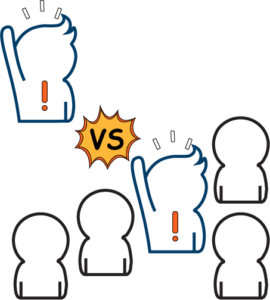
“Should I ask for help / hire someone to do it?” VS “I don’t have the budget to hire someone to do this, so I must do it alone.”
A complicated dilemma isn’t it?
It is a common problem that we face throughout our lives, especially when we are starting a new project. This is the time that you choose your work style for that project. When it comes to solving complex problems, there are two types of people we can identify:
- Those who prefer to work alone.
- Those who are fond of collaborative tasks
Although there are many theories about how those two preferences can be developed, it is important to know how they affect the creative process.
Even entrepreneurs who are starting their own business often find themselves trapped into this infinite loop of “teamwork vs solo-play”. It turns out that this is the biggest barrier that we face during the first steps of the creative process.
So, is it better to work alone or in a group?
It seems simple, but it is indeed a hard question because it depends on a plethora of factors. They can be deadlines, the size of the group, or even a known/unknown procedure. Having said that, here I share some positive and negative insights regarding both work styles.
THE TEAM PLAYERS

“Sharing experiences is the best way to succeed.”
“Two heads think better than one.”
Team players prefer to rely on their peers so they can help each other to solve problems and increase efficiency. Most of them are extroverts who thrive in an active workplace.
There are lots of benefits in investing in group-work, but here we will only focus on the top 3 perks:
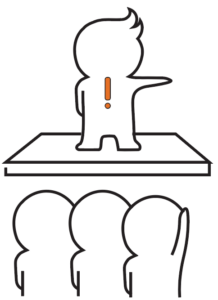
- You learn and improve your communication skills towards problem solving from tackling different opinions to delegating tasks.
- There is a potential for saving time when sharing and distributing tasks among the members of the group. Consequently, people will be less likely to feel stressed due to work overload.
- It might open room for future partnerships.
Working in a group has indeed great benefits, but don’t be naive to think that they are easy to achieve. Dealing with different people requires a system and/or strong organization skills to guarantee the efficiency of the group.

- There will be disagreements, so, if not controlled soon, opposite ideas and opinions can destroy the whole group’s productivity.
- Different points of view provide the group with more possibilities to analyze, which means more time spend in discussions.
- The hardest challenge in team-play is to align the group goals with the level of commitment with the group. Those who do not show commitment will delay the whole team.
Teamwork also strengthens relationships and offers some other benefits, such as collective brainstorming, time optimization, and synergy. According to team-players, when people align their vision towards a common goal, they often create more effective solutions than independent workers do. Therefore, they usually struggle to solve problems alone and need more help during the creative process.
The greatest strengths of team-players are their empathy and their ability to identify other people’s potential.
THE SOLO PLAYERS

“I would rather be alone than with the wrong company.”
“You can only trust 100% in yourself.”
Solo players prefer to rely on their motivation and proactivity to solve problems and increase their work efficiency. Most of them are natural improvisers who need more space and time to connect their ideas and come up with an organized plan. They like follow their own pace and their own system, but when they are forced to put them aside to adopt the group’s system, they feel uncomfortable.
Sometimes, extra help ends up slowing down the process instead of accelerating it. Therefore, efficiency and productivity standards are the main reasons that motivate individuals to work alone rather than working in a group. Some of them need more freedom or flexibility, others might enjoy it because there is no pressure on them, or even because they feel they do not fit in the group.
For those who feel like outcasts, there are two ways to analyze such posture:
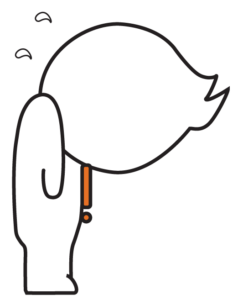
- A lack of communication skills may block the individual from contributing with his/her ideas in a group. Those introverted personalities need more freedom to adapt their work environments to suit their strengths and weaknesses.
“I don’t want to share my problems, and I am the only one who can solve them”.
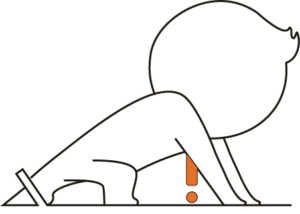
- The second way is adopting the point of view of a high performer who perceives that the other team members are not willing to show the same level of commitment on the project; therefore, he/she will prefer to work alone to make sure that the result is achieved.
“If I depend on them, I will take 3 times longer to finish this.”
Working alone also helps us to develop our discipline and offers some other benefits, such as the potential for originality, time optimization, and personal development. According to solo players, you learn more about yourself working alone than working in groups. Despite being shy or extremely proactive, both types of solo players are very persistent. Hence, they usually struggle to deal with information overload.
The greatest strengths of independent workers are their ability to create unique solutions and their incredible resilience.
CONCLUSION
To conclude, there is no correct approach to put our efforts towards a goal. The most important aspects are the level of commitment and communication within the team.
For instance, solo players enjoy a flexible work style that requires a high level of motivation, discipline, and self-awareness; whereas team players enjoy a collaborative work style that requires high levels of synergy, commitment, and trust.
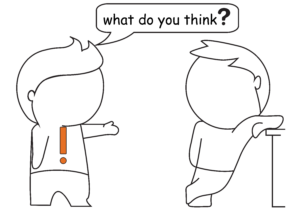 Despite of the pros and cons mentioned so far, asking for help is the best way to get things done and combine both work styles. As you ask for help, you are automatically delegating a task to optimize your time, yet not sacrificing your freedom to create and produce.
Despite of the pros and cons mentioned so far, asking for help is the best way to get things done and combine both work styles. As you ask for help, you are automatically delegating a task to optimize your time, yet not sacrificing your freedom to create and produce.
Once we understand how those two groups think and work, we can perceive opportunities and optimize environments to increase productivity and foster innovation. Additionally, it is also good to know when group work is necessary and when someone (especially us) needs a break from the group to work alone.
What about you?
Do you prefer to work alone or in a group?
Write down on the comments below and share this article with those who share the same work style as yours. 😊



